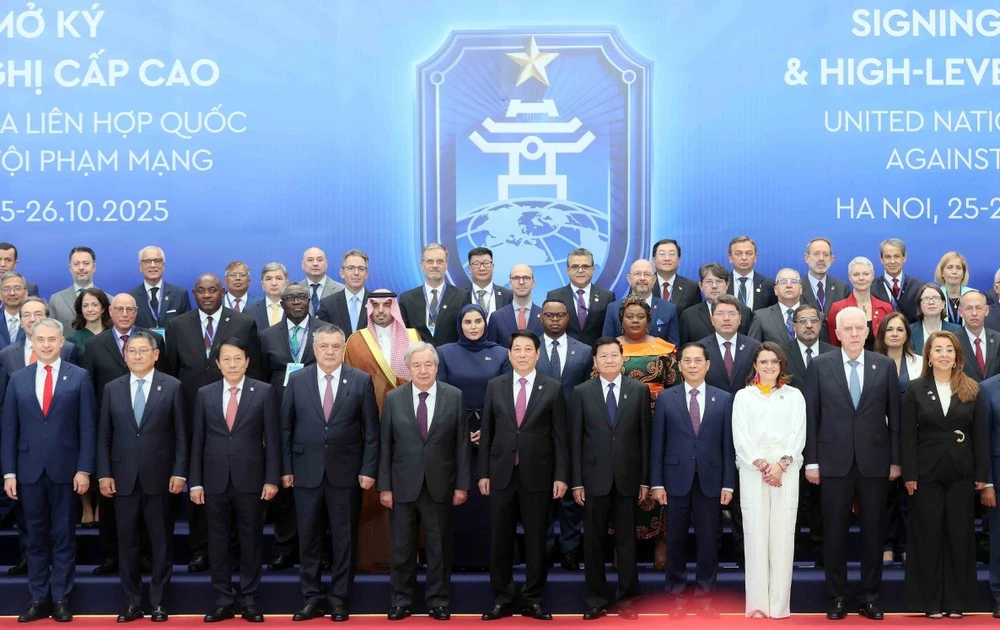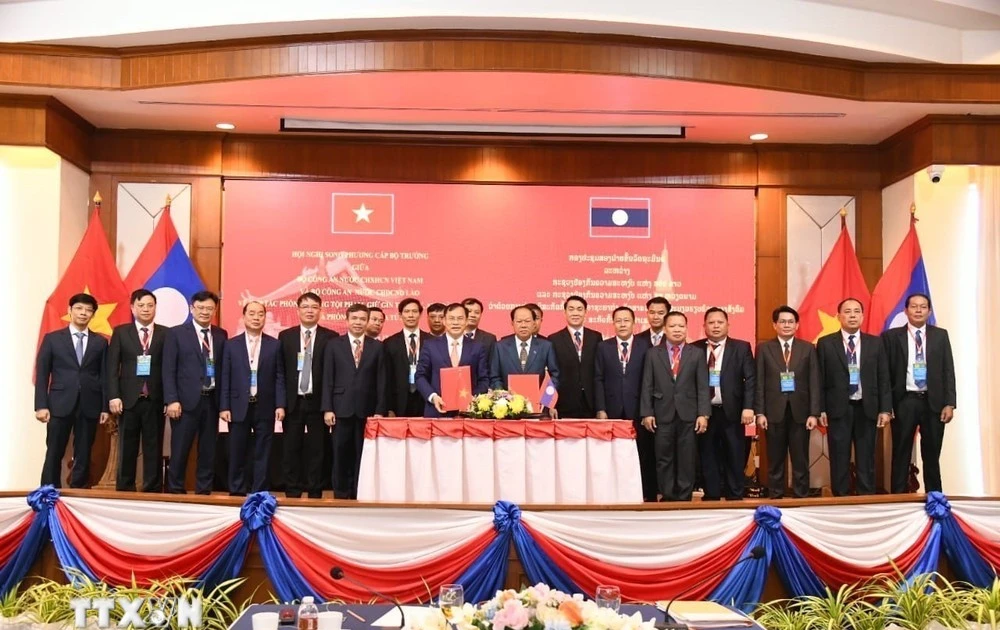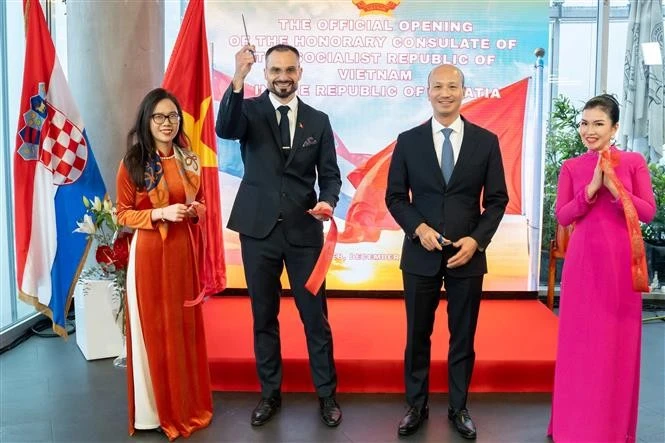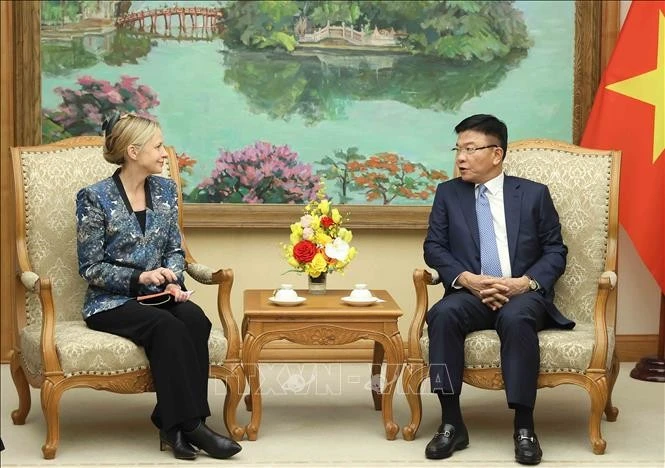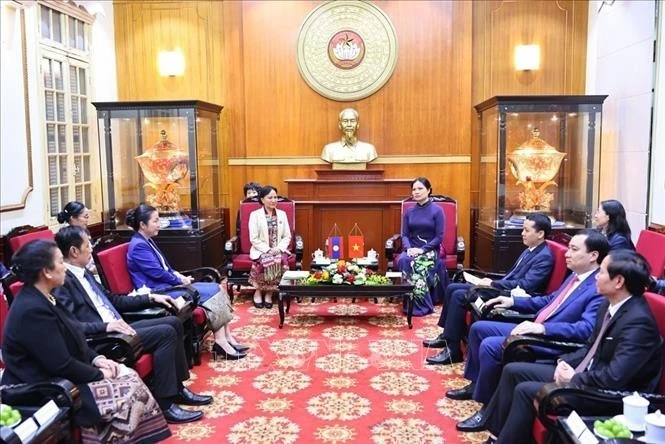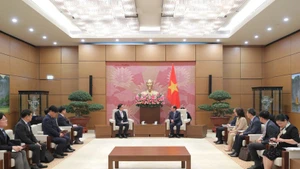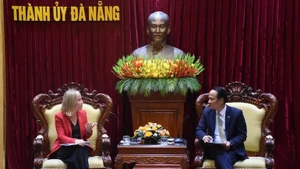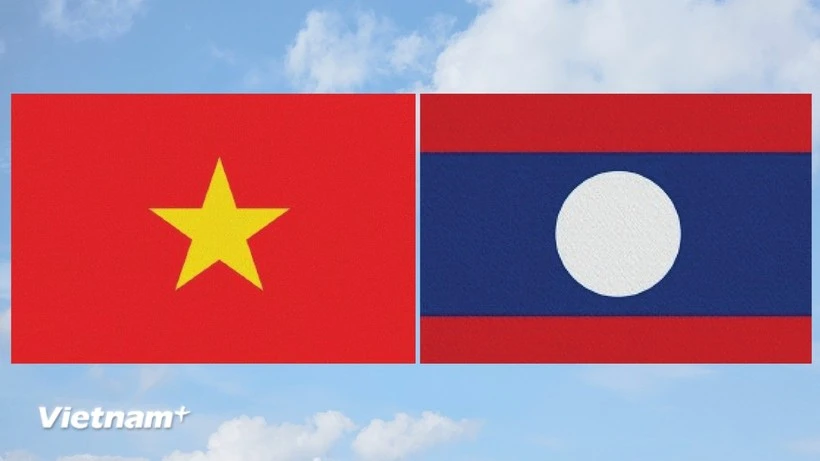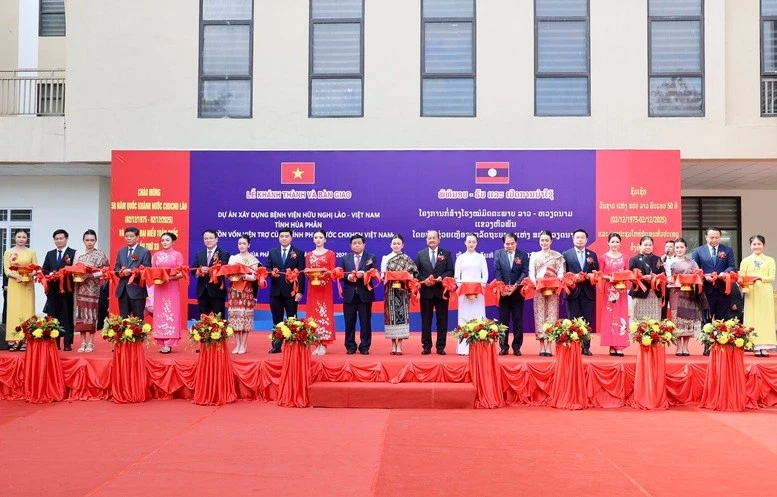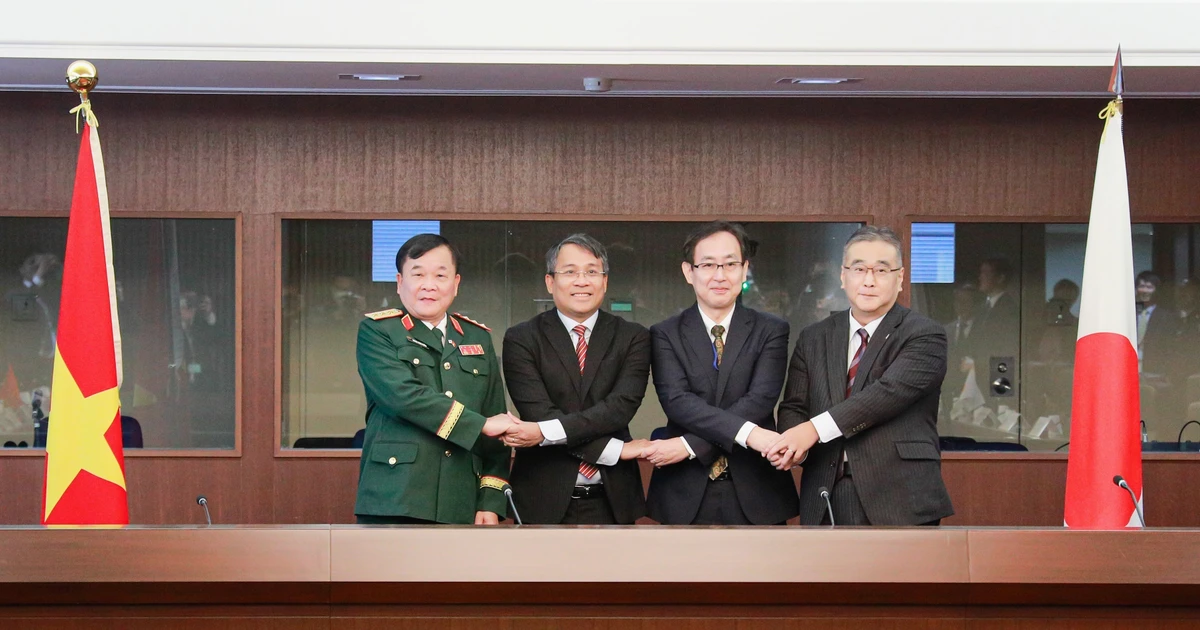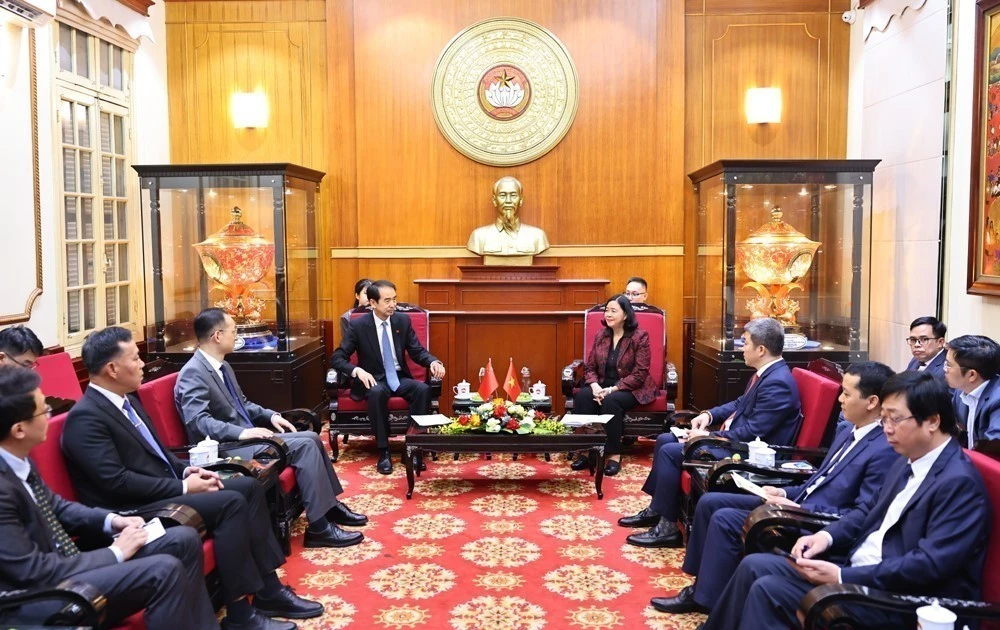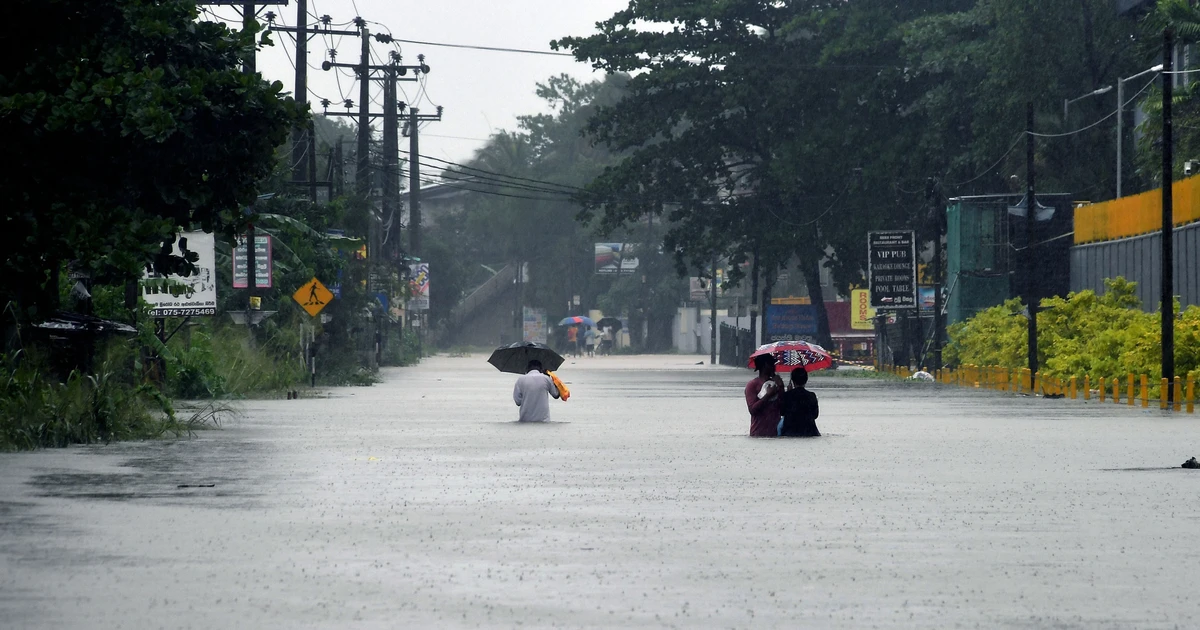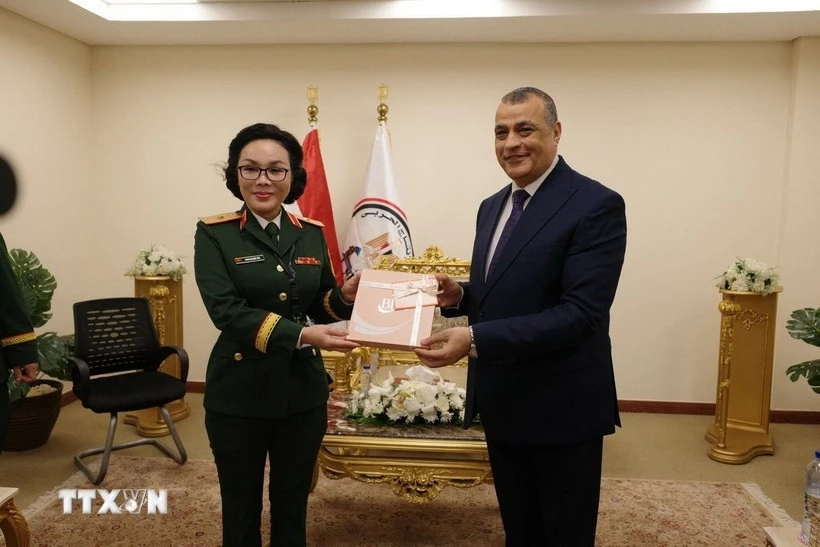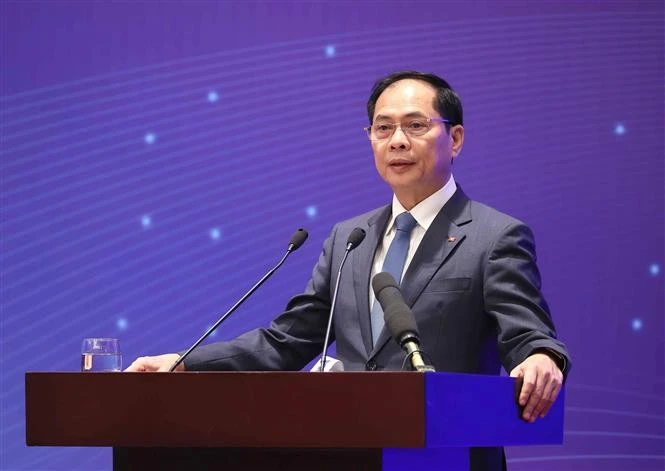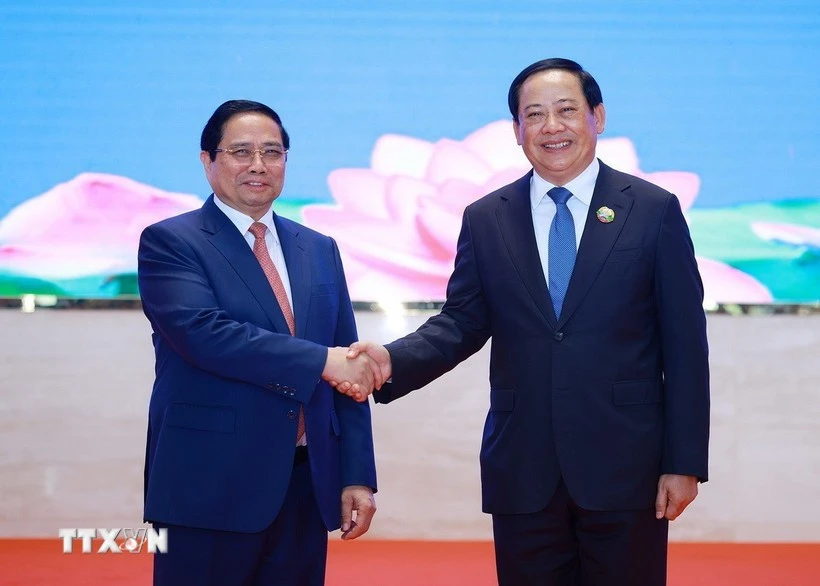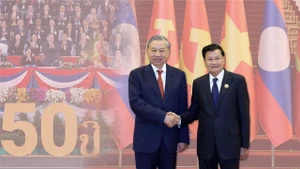Vietnamese State President Luong Cuong chaired the ceremony with the participation of United Nations Secretary-General Antonio Guterres and leaders and high-level representatives of about 110 countries and many international organisations, including UN agencies, regional organisations, financial institutions, and many experts and scholars in the field of cybersecurity and international law.
Before the opening session, President Cuong chaired the official welcome ceremony and took a group photo with the heads of delegations attending the Signing Ceremony and the High-Level Conference of the United Nations Convention against Cybercrime. He and the delegates visited the photo exhibition organised by the Viet Nam News Agency (VNA) introducing Viet Nam, its people and development achievements, as well as the country’s positive contributions to the activities of the United Nations, and the Viet Nam - United Nations relationship.
President Cuong and UN Secretary-General Guterres will deliver opening speeches and then representatives of 60 countries will participate in signing the Ha Noi Convention at an official ceremony run by the United Nations Office for Legal Affairs (OLA).
The United Nations Convention against Cybercrime was initiated by the United Nations in 2019, stemming from the urgent need to build a comprehensive legal framework to address global challenges in non-traditional security, climate change and sustainable development. After five years of negotiations, the United Nations General Assembly officially approved the convention by consensus on December 24, 2024.
The convention, consisting of nine chapters and 71 articles, provides a comprehensive approach to preventing and combating the global scourge of cybercrime and upholding human rights principles. It addresses technical and legal challenges by adapting traditional criminal investigation methods to the information and communications technology environment, while enhancing international cooperation.
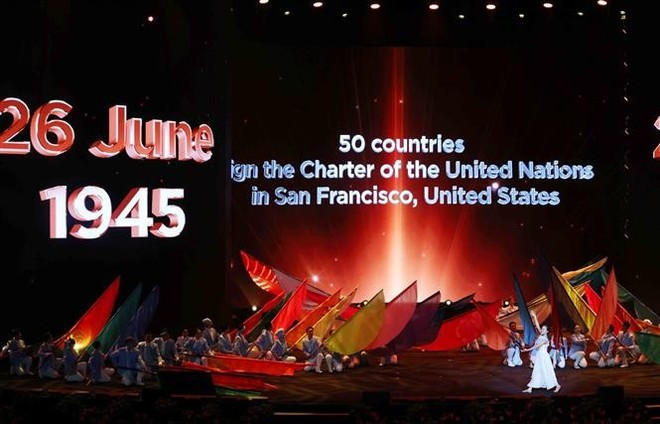
Throughout the drafting process of the convention, Viet Nam has played an active and proactive role, demonstrated by hosting numerous international workshops that brought together experts from the United Nations Development Programme (UNDP), the World Health Organisation (WHO) and the United Nations Office on Drugs and Crime (UNODC). These discussions helped shape the convention’s content, focusing on key areas such as cybersecurity, environmental protection and poverty reduction.
Viet Nam’s initiatives, including the proposal of a support mechanism for least developed countries and the integration of climate change considerations, received strong backing from the international community, contributing significantly to the development of a globally relevant document.
The UN's decision to select Ha Noi as the venue for the convention signing ceremony marks a historic milestone in Viet Nam’s multilateral diplomacy and nearly five decades of the Viet Nam–UN partnership. This is the first time a location in Viet Nam has been associated with a global multilateral treaty addressing an issue of profound international concern.
The selection underscores the country’s rising international stature and credibility as a proactive advocate of multilateralism, a participant in shaping global digital governance frameworks, and a defender of cybersecurity and national sovereignty in cyberspace. It also lays the groundwork for Viet Nam’s successful implementation of its digital transformation strategy, paving the way for a new era of Viet Nam - an era of prosperity and development.
Within the framework of the Signing Ceremony and the High-level Conference of the UN Convention against Cybercrime, a plenary session co-chaired by Prime Minister Pham Minh Chinh and UN Secretary-General António Guterres will take place.
The programme will also include a series of high-level bilateral meetings and side events on topics such as protecting citizens in the digital transformation era, global cooperation against online scams, implementing the UN Convention against Cybercrime with capacity building as a pillar of global cooperation, and sharing experience in investigating and collecting electronic evidence in cases involving virtual assets and money laundering, among others.
